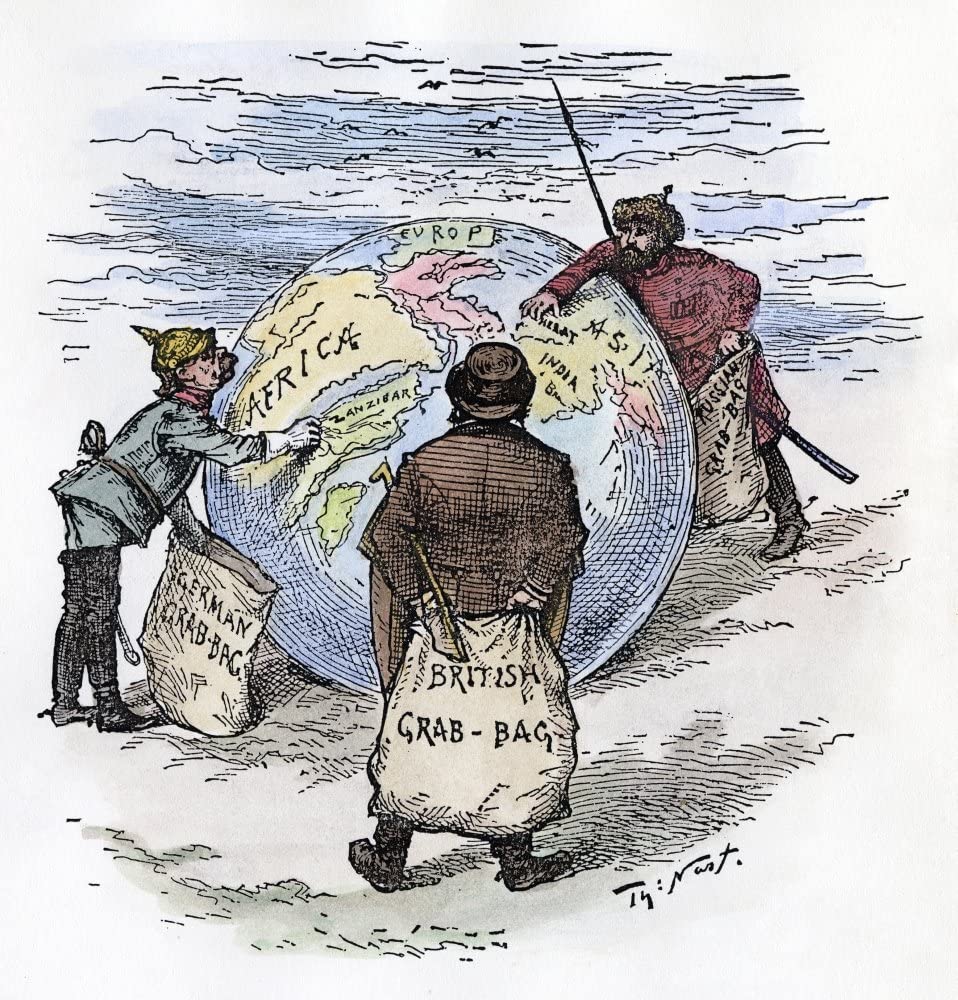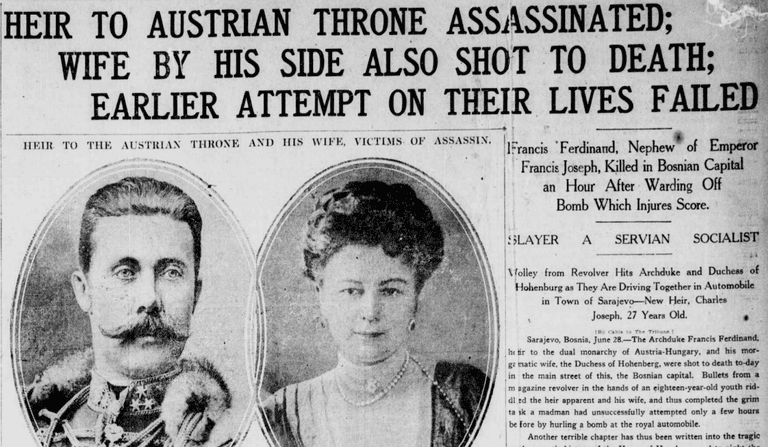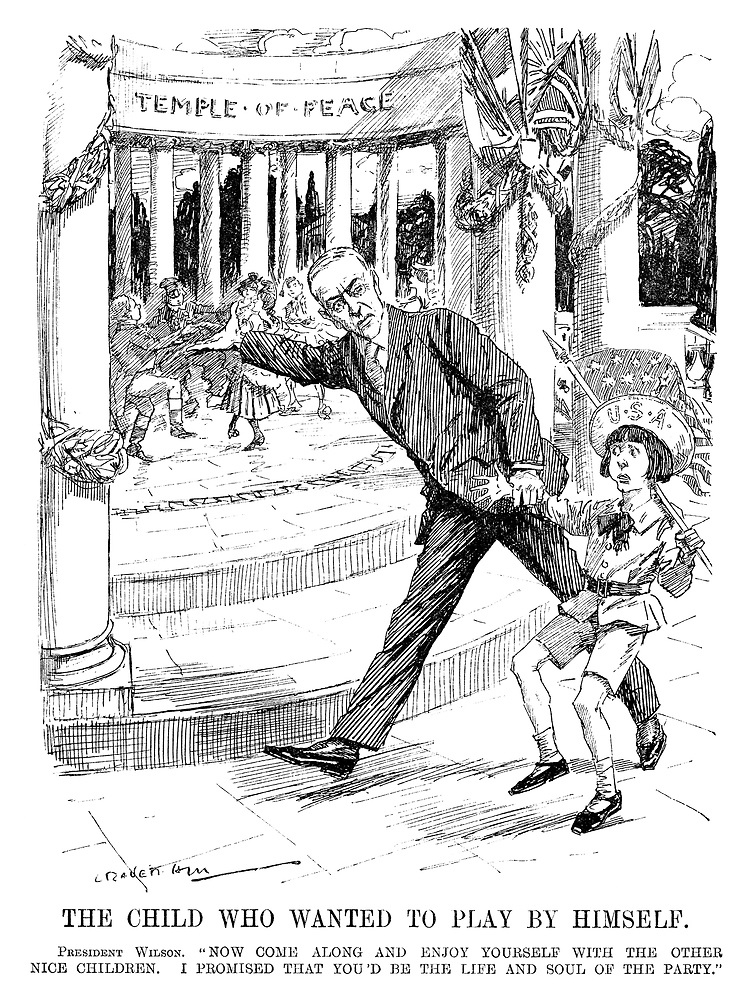Early Imperial History

"Empire Imperialism Cartoon - The World's Plunderers," Thomas Nast, 1885
During the 1900s, imperialist ideology grew prevalent throughout Europe. Imperialism, the elongating rule over people, became a WWI foundation as Britain, France, and other empires expanded their rule and heightened tensions.
"We seem, as it were, to have
conquered and peopled half the world…"
- John Robert Seeley, Historian (1883)
"The sacredness of property, civilization itself depends."
- Andrew Carnegie, Industrialist (1889)

"Heir to Austrian Throne Assassinated Newspaper," New York Herald Tribune, 1914
On June 24, 1914, Gavrilo Princip, a member of the Serbian Nationalist Black Hand society, assassinated Franz Ferdinand, the Austro-Hungarian heir, breaking peace between Serbia and Austria-Hungary, igniting WWI.
Following Ferdinand's assassination, Serbia received Austria-Hungary's demands; ultimately, Serbia objected to the demand to investigate the assassination. WWI catalyzed as France, Italy, Romania, Japan, Britain, and Russia joined Serbia. Germany, Bulgaria, and the Ottoman Empire followed Austria-Hungary.
Shortly after, the U.S. followed Serbia to war. Campaigning on isolationism, U.S. President Woodrow Wilson's administration focused on neutrality. After Zimmermann Telegram communication stating their intention to ally with Mexico toppling the U.S., Germany became an impediment. They announced unrestricted submarine warfare, breaching their agreement after sinking the Lusitania with Americans onboard. By April 6, 1917, President Wilson declared war on Germany.
"It is a fearful thing to lead this
great peaceful people into war, into the
most terrible and disastrous of all wars, civilization itself seeming to be in the balance."
- Woodrow Wilson, U.S. President (1917)

"U.S. Enters WWI Newspaper," The Chicago Daily Tribune, 1917
In two years of barbaric and extortionate war, the U.S. spent $32 billion and lost over 116,000 men. Wilson wanted to end the war.
"It was too horribly obvious to me that dozens of men with serious wounds must have crawled for safety into shell holes. And now the water was rising above them, and powerless to move, they were slowly drowning."
- Edwin Vaughan, British Lieutenant (1917)
"All through the long night those big guns flashed and growled just like the lightning and the thunder when it storms in the mountains at home... the dead were all along the road. And it was wet and cold. And it all made me think of the Bible and the story of the Antichrist and Armageddon."
- Alvin C. York, U.S. Soldier (1918)
To end wars, Wilson formulated his idealistic 14 Points, describing how to defend global peace. Although unsuccessful, this Wilsonian idealism would define his argument in future peace discussions.
"The people of the United States could act upon no other principle; and to the vindication of this principle they are ready to devote their lives, their honor, and everything that they possess. The moral climax of this the culminating and final war for human liberty has come..."
- Woodrow Wilson, U.S. President (1918)

"The Child Who Wanted to Play by Himself," Leonard Raven Hill, 1919

"Wilson's 14 Points - Headlines, San Luis Obispo Daily Telegram, 1918

"Armistice Signed - Headlines," The Evening Missourian, 1918
After breaking Germany's last defense, the Central powers surrendered to the Allies and signed the Armistice of November 11, 1918, ending the war. Germany believed they were not responsible for the war, and they were waiting for a Wilsonian Peace.
“At eleven o’clock this morning came to an end the cruellest and most terrible War that has ever scourged mankind. I hope we may say that thus, this fateful morning, came to an end all wars.”
- David Lloyd George, British Prime Minister (1918)
On January 18, 1919, diplomats from the Allies gathered at the Paris Peace Conference to permanently end WWI and future wars.
“This is a war to end all wars.”
- Woodrow Wilson, U.S. President (1917)
“...Germany is going to pay...every bit of [German-owned] property...should be surrendered by the Germans.”
- Eric Geddes, British Politician (1918)
"Introducing the Treaty of Versailles/Make Germany Pay," BBC TWO, circa 1900